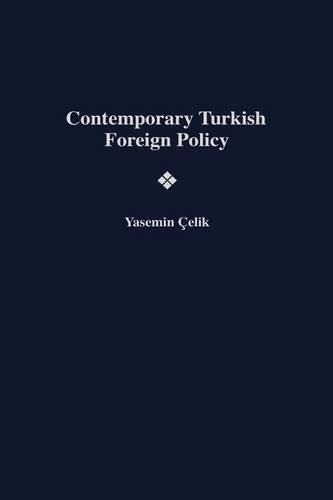
Contemporary Turkish Foreign Policy
(Hardback)
Publishing Details
Contemporary Turkish Foreign Policy
By (Author) Yasemin Celik Levine
Bloomsbury Publishing PLC
Praeger Publishers Inc
30th September 1999
United States
Classifications
Tertiary Education
Non Fiction
Central / national / federal government policies
327.561
Physical Properties
Hardback
208
Description
Celik examines how the easing of the East-West tensions, the end of the Cold War, and the disintegration of the Soviet Union affects Turkey's foreign policy. During the Cold War, Ankara's role as a front-line state in containing Soviet expansionism had greatly influenced its foreign policy orientation as well as its foreign policy behavior. As such, changes in the structure of the international system were bound to alter the ways in which Turkey interacted with other states in the post-Cold War world. An examination of Turkish foreign policy, however, shows a high degree of continuity and stability. While Turkey's security environment has improved significantly during the 1990s, political and military considerations continue to drive Ankara's behavior. Furthermore, despite shifts in foreign policy behaviorsuch as closer relations with the former Soviet republics, active involvement in the Persian Gulf War, and military alliance with Israelthere have been no major alterations in foreign policy orientation. Turkey remains staunchly pro-western and the United States continues to be its most important ally. The post-Cold War era, however, also has brought an element of uncertainty to Turkish foreign policy and raises questions about its direction for the future.
Author Bio
YASEMIN CELIK is Adjunct Professor in the Department of Social Science, Fashion Institute of Technology, State University of New York, New York City, where she teaches comparative politics.
